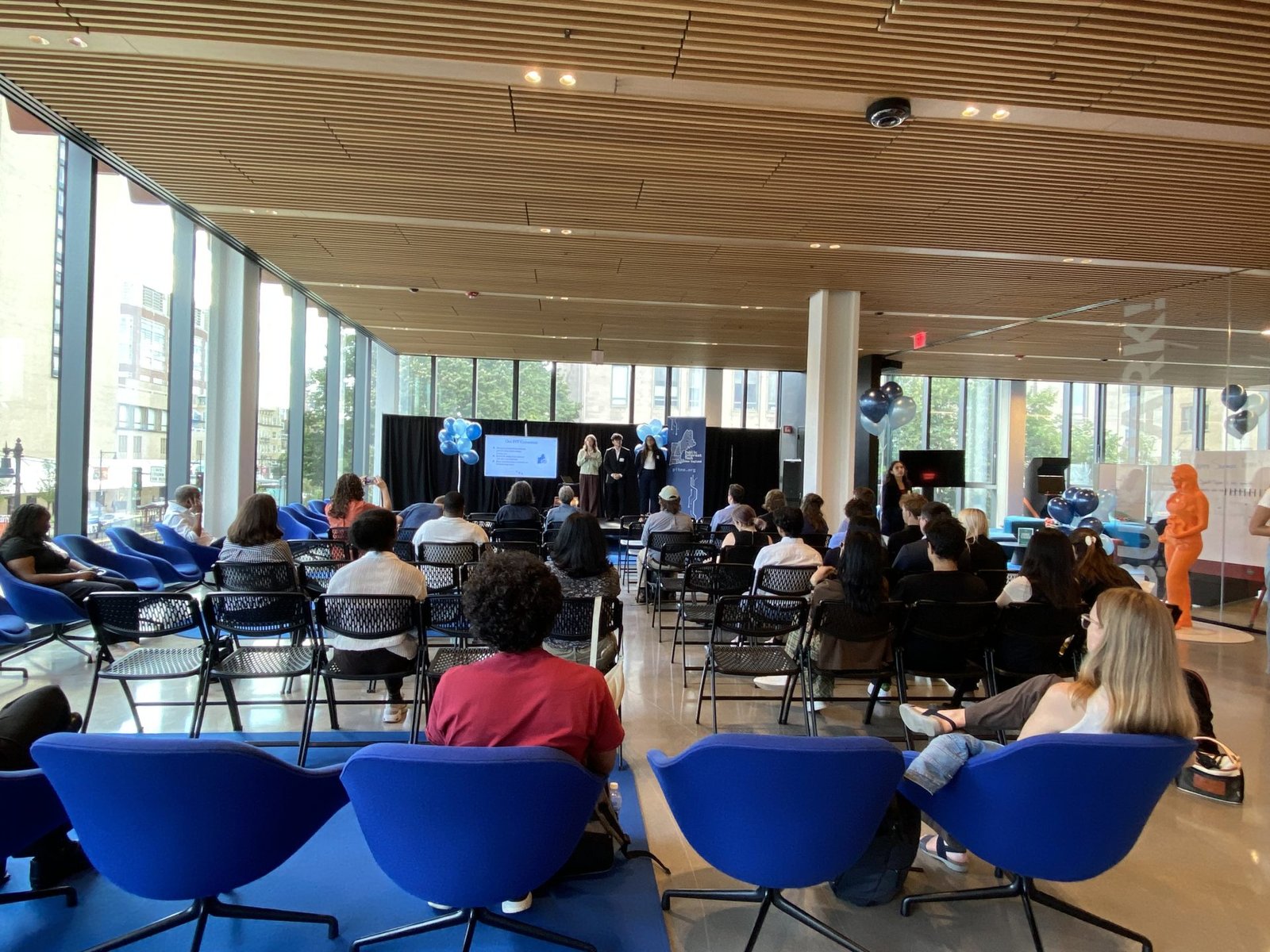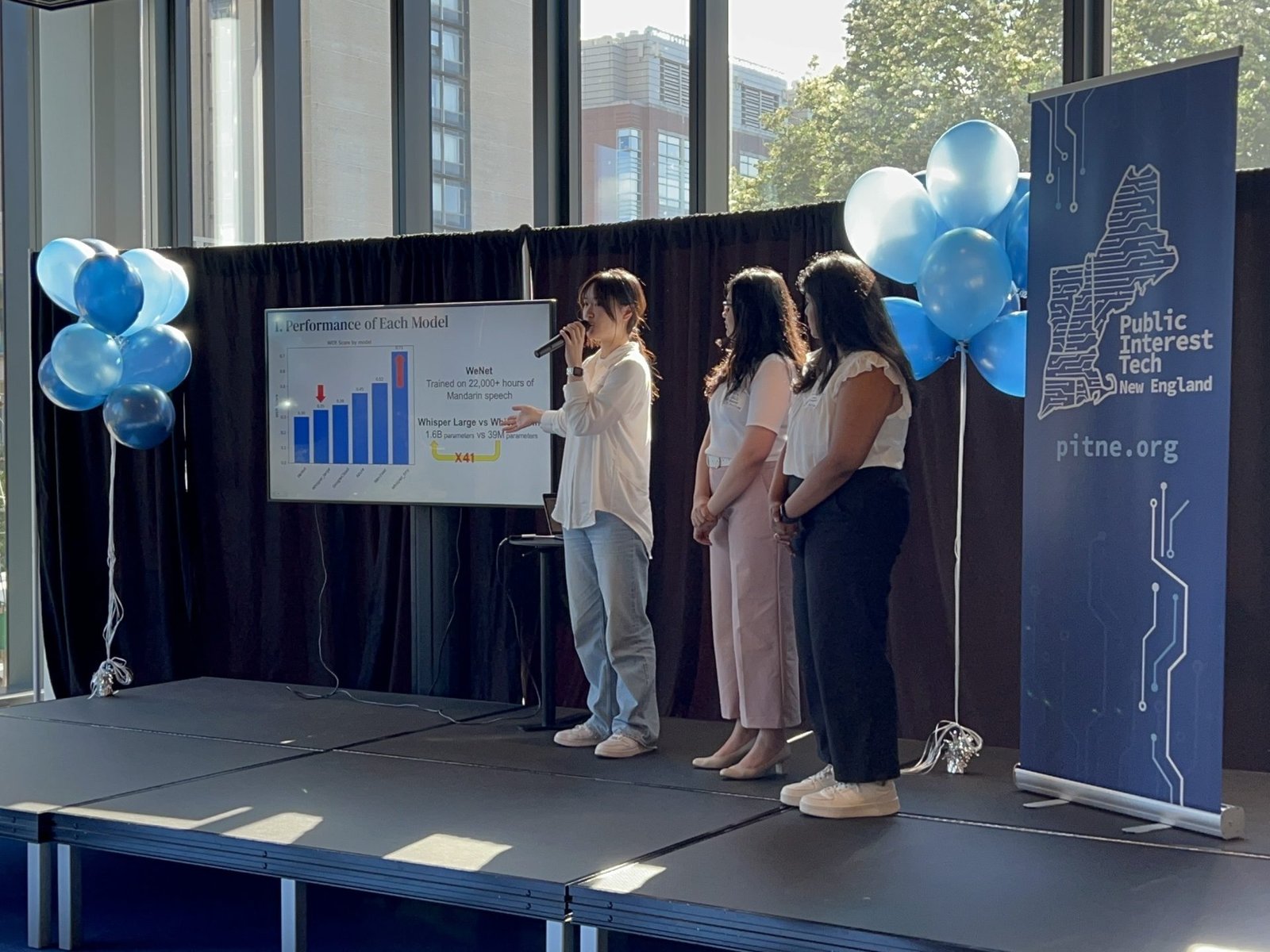






It was a busy start to summer for the 21 Impact Technology Fellows who worked full-time for 6 weeks on Public Interest Technology (PIT) projects under the guidance of mentors and advisors from academia, the private sector, and government who provided technical and subject matter expertise. Boston University’s Spark! facilitated technical work and Public Interest Technology – New England (PIT-NE) organized programming including professional development workshops to grow communication and networking skills, tech talks to learn about data visualizations, Git, and more, and PIT seminars where local leaders shared their work and tools for designing, developing, and deploying technology in responsible ways. Zach from Boston University, a 2024 Fellow, said “Having many speakers come in to speak on PIT careers and initiatives really opened my eyes to … the nuances and subtleties of what PIT is. I know the career paths I can take to enter PIT and I hope I have the opportunity to follow one of them in the future.”
Program Overview
The 21 fellows worked in teams on six different software engineering, machine learning, and data science projects in collaboration with community partners from a variety of sectors. The teams included undergraduate students from Boston University, Olin College, Tufts University, and UMass Amherst in technical majors like computer science, informatics, and data science. Each day, the teams came together at Boston University’s Center for Computing and Data Sciences to work on messy, real-world problems under the guidance of their mentors and advisors from Boston University’s Spark! community.
To conclude the program, each team presented at the PIT-NE Summer Institute’s Community Showcase, highlighting their projects’ technical and social impact achievements. Following the presentations, community members had a chance to demo projects and talk more in-depth with each team about their work.
program Impact
The community partners were thrilled to receive final projects that met or exceeded their expectations and working products that they plan to use in the future. For each of the machine learning projects, the partners hope to use the data in future research papers. The partners from the data science projects plan to use visualizations from this summer to educate communities and promote equitable news coverage. The software engineering projects will be maintained by government and non-profit organizations to increase voter and constituent engagement. As 2024 Fellow Eleanor from Tufts University said, “I never would’ve believed that at the end I’d have made an entire functioning website that accomplishes a tangible goal, for a genuine client. I feel like the work I’ve done could make a real impact on real people. And that’s very uplifting.”
In a final evaluation survey of the program, Fellows commented on the growth they experienced in their journey toward becoming public interest technologists. While fellows advanced their technical skills, they also noted that they developed their networks, professional skills, PIT knowledge, teamwork, and lifelong friendships. After the program, 84% of the fellows reported a greater interest in pursuing a public interest-focused career when they enter the workforce. Nikhila from UMass Amherst, a 2024 Fellow, noted, “I gained a purpose in life, especially towards my career. Before I only thought about working for big tech companies. But this program completely changed my perspective. I realized there is so much more than status/pay to a job. Being able to help communities and making a positive influence matters the most to me now. ”
PIT-NE is proud of the 2024 Impact Technology Fellows and looks forward to seeing how they will use this experience as a foundation for their future careers. This program is a step forward in building a robust community of public interest technologists excited to use technology to create positive change in our communities. PIT-NE hopes to expand this program in years to come by continuing to grow its partnership with Boston University’s Spark! and if you would like to learn more, please contact info@pitne.org.
Projects
Data Science Projects
- Landmass Use in Longmeadow, MA (MassMutual and Longmeadow Historical Society): Leveraging technology to identify and create data visualizations of historic racist deed restrictions in Longmeadow, MA.
- Racial Bias in News Coverage (NAACP of Massachusetts): Analyzing coverage of Boston’s Black community in the Boston Globe over a decade to assess changes in coverage, volume, topic, sentiment, and demographic representation.
Machine Learning Projects
- SeasonWatch (SeasonWatch, India): A citizen science project to monitor tree phenology in India to understand climate change impacts on seasonal patterns by comparing citizen submitted tree data against the reference database.
- AImpower (AImpower): Benchmarking speech recordings of people who stutter against popular speech recognition models provided by OpenAI, Google, Facebook, Microsoft, and Otter.AI to analyze the role of technology in marginalizing people who stutter.
Software Engineering Projects
- District 4 App (Boston City Councilor Brian Worrell): Developing a platform for civic engagement and user-friendly resource access to developments, events, and announcements for Boston’s District 4.
- Boston Voter App (Yawu Miller, journalist former senior editor of Bay State Banner): Creating a web application to address the lack of accessible information about voting logistics and candidates in municipal elections in Boston. This is part of Miller’s new venture to establish a non-profit news agency to expand reporting on Massachusetts’s Black and Latino communities.
